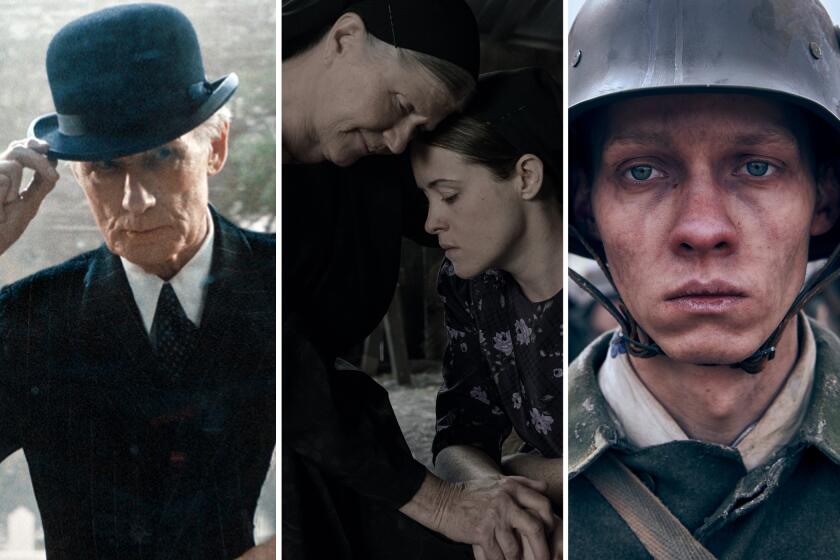How these three features — from three countries — were inspired by historical events
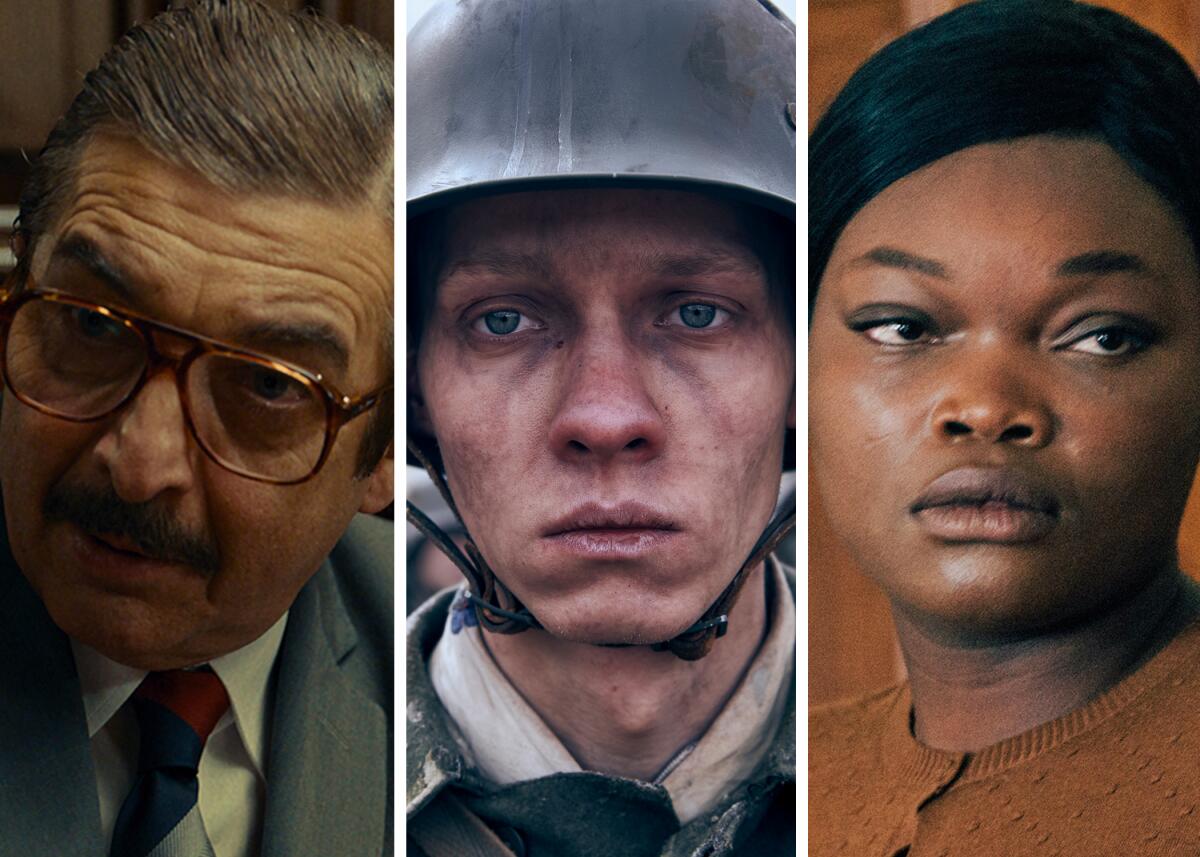
- Share via
Whether it’s in tackling the societal impact of immigration in France, the horrors of a misguided war in Europe or the long tail of justice in Argentina, history continues to affect the international film Oscar race. This year, three directors from different parts of the world bring their personal perspectives to major events, resulting in three moving contenders for academy voters to consider.
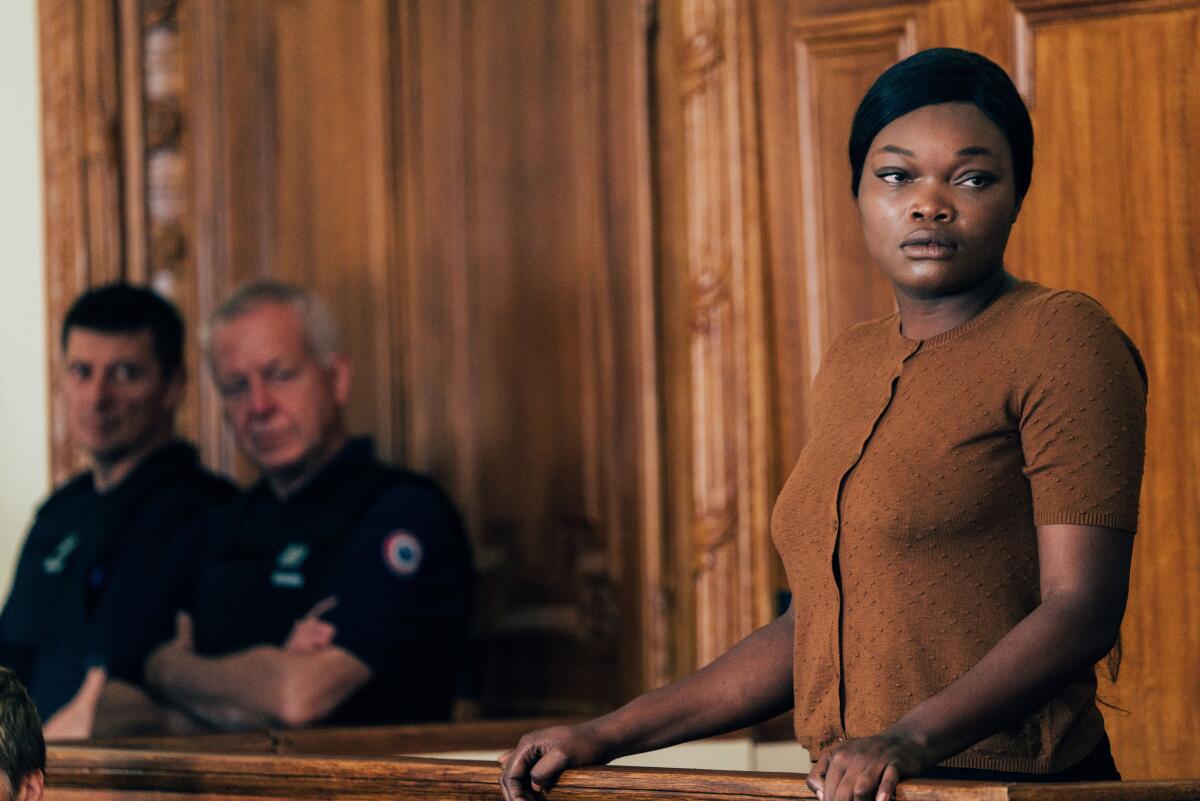
‘Saint Omer’
Inspired by the criminal case of Fabienne Kabou, “Saint Omer” follows a writer (Kayije Kagame), who attends the trial of a French Senegalese immigrant, (Guslagie Malanga) accused of intentionally letting her baby drown in the ocean. Bringing that story to the screen was a passion project for Alice Diop, who attended Kabou’s trial in the region of Saint-Omer almost a decade ago. Despite the particular French political issues in the story, the filmmaker saw the opportunity to introduce two characters that would resonate with viewers everywhere.
Diop says, “The film confirms a political conviction that I’ve held since I first had the idea of making films, which is that we Black people can express and carry universal themes that speak to everyone, but there’s also something in the film that relates directly to the violence that is passed down that relates to my specific way of being French, which is that I am the child of a mother and I am now a mother who’s shaped by the experience of that mother. An experience of pain and melancholy of being an exiled woman and of the colonial history that still continues to shape my experience to this day.”
And since it won the Silver Lion at the Venice Film Festival, Diop continues to meet people around the world who connect with her work.
“No longer than an hour ago, I did an interview with an American Black woman,” Diop reveals. “She’s not French. She doesn’t particularly know the French context, but she was tremendously moved by the film and that really moved me because she recognized some of these emotions that I think only Black women can feel. And so, the joy of this film is in these dimensions that it has for me. There’s this aspect that I think only Black women can recognize, and at the same time the film speaks to all women.”
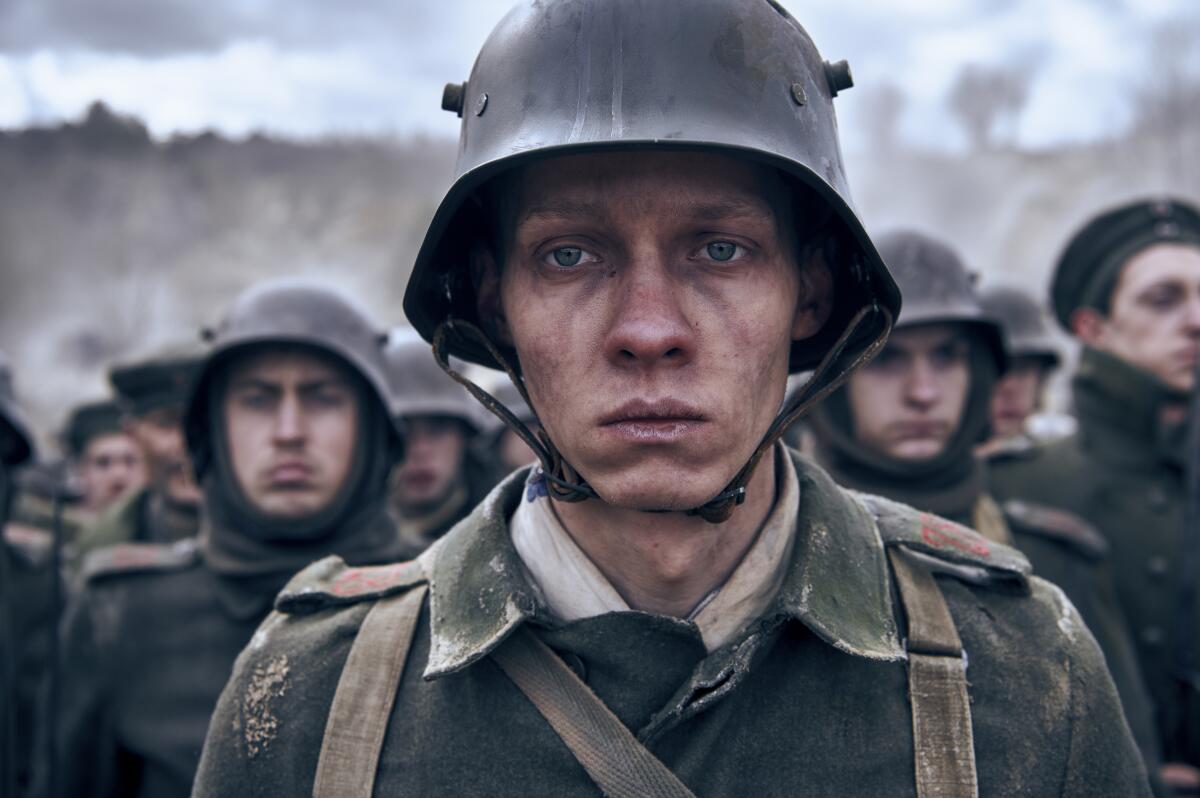
‘All Quiet on the Western Front’
Tackling a new adaptation of “All Quiet on the Western Front” would be a tough task for any filmmaker. For Edward Berger, directing it in his native German was an even bigger challenge. Despite the backing of Netflix, there was no $100-million budget to help stage the massive World War I battles depicted in the original 1929 novel. Instead, Berger and his collaborators needed to plan everything out meticulously to give the story the scope it deserved.
“We did storyboards. If you could put them next to the film, you’d be surprised — it’s identical,” Berger says. “I locked myself away with [director of photography James Friend], and we really thought the movie through, visualized it, drew the images, redrew them, revisited them, put them up against the wall, looking at the sequence, thought, ‘That’s not going to be a good scene. Let’s cut this shot. Let’s add another one. We’re missing this.’ We really made the movie on a wall in a hotel room in Berlin.”
With recent war films such as “Dunkirk” and “1917” already in the pop-culture ether, there was even more pressure on Berger to ensure every shot uniquely depicts the epic scale of the Great War. They spent hundreds of hours planning the special effects, explosions and what became an immaculate sound design. And, for instance, consider a shot of a tank going over a trench of soldiers. How would they pull that off safely?
“You really get drained, and you get scared by the sheer amount of work that you have to do,” Berger notes. “Then, in the end, we always said, ‘We planned this on a whole, but now let’s just concentrate on the next shot. When we’ve got that, let’s figure out the next, let’s concentrate on the next.’ To break it down into little pieces helped really manage the weight of it.”
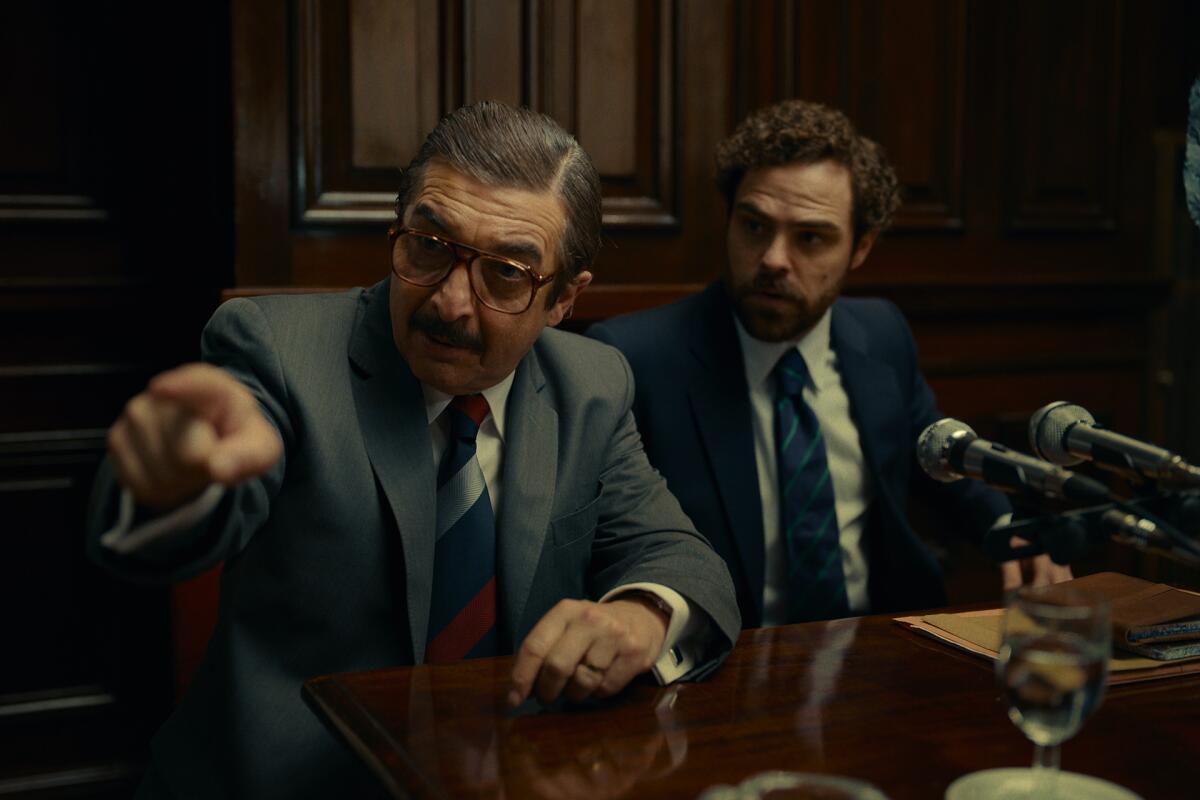
‘Argentina,1985’
Even “Argentina, 1985” director Santiago Mitre is surprised it took this long for the Trial of the Juntas to be adapted into a motion picture. A seminal moment in the history of Argentina, the proceedings saw the leaders of the military dictatorship prosecuted for numerous crimes against their own people. And, for the film, context was key as it occurred just a year after their infamous authoritarian reign ended.
“The militaries were still very strong and menacing,” Mitre notes. “It was something risky and brave and unique for the history of justice. It was the first time in the history of justice that the [nation’s] own institutions of democracy held a trial against a dictatorship. Nuremberg was handled by the winners of [World War II]. In Greece, it was the military justice who prosecuted them. So, in Argentina, it was a [civil case], citizens who put on this trial.”
The film follows famed prosecutor Julio César Strassera (Ricardo Darín) as he recruits a team of young lawyers to assist him in attempting to convict several influential military figures. Despite the constant dangers to Strassera and his team, the picture is more entertaining than you might expect considering its subject matter.
“Strassera was a funny guy. He has these small funny moments; they came very naturally,” Mitre says. “And they came from what we heard during the research. I feel it’s something that really works well now in the film because when you laugh with the characters you feel more connected to them. And then if you feel connected to the characters, then the moment when the heart of the film comes — that it’s the witness who is telling what they [went through] — you are very in the film. So, you can lose yourself to emotion a lot more freely.”
Our BuzzMeter film experts predict the Oscar winners in 10 categories. Check out the consensus picks, close races and interesting narratives - and vote in the polls for every category.
More to Read
From the Oscars to the Emmys.
Get the Envelope newsletter for exclusive awards season coverage, behind-the-scenes stories from the Envelope podcast and columnist Glenn Whipp’s must-read analysis.
You may occasionally receive promotional content from the Los Angeles Times.
